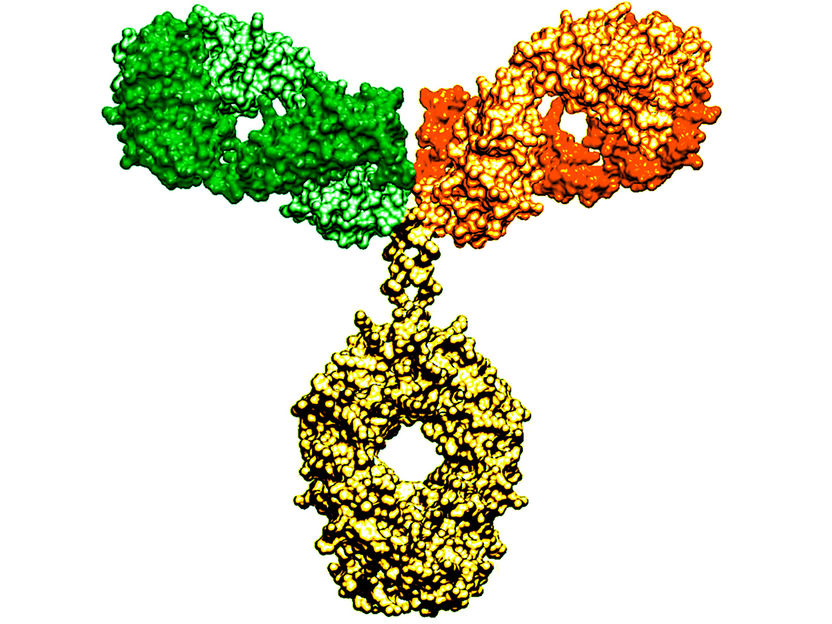Hopes of a New Treatment Approach for Paralysis
Scientists at the Deutsches Krebsforschungszentrum (German Cancer Research Center, Heidelberg) were recently able to show in experiments with mice that a paralysis can be reversed by blocking programmed cell death.
Paralysis in the form of paraplegia and quadriplegia is usually the result of traumatic spinal cord injuries, but can also be caused by tumors. When the spinal cord is cut off, information sent by the brain can no longer be transmitted to the limbs. Biological processes such as programmed cell death, or apoptosis, take place after the actual moment of injury of the nerve cords and lead to further destruction of the damaged tissue and thus to permanent paralysis.
Dr. Ana Martin-Villalba and collaborators at the Immunogenetics Division headed by Professor Dr. Peter Krammer describe in the latest issue of the science journal Nature Medicine how blockage of a key molecule of apoptosis restores the ability of coordinated movement of paralyzed limbs. Using specific antibodies, the investigators blocked a protein called CD95 L which triggers a suicide cascade in cells carrying the specific receptor protein CD95.
The experiments showed that mice treated with antibodies after selective spinal cord injuries performed significantly better in special skill tests than the control animals. In addition, tissue sections of the treated animals revealed newly growing nerve fibers beyond the place of injury. Treatment with antibodies also prevented oligodendrocytes from dying - cells that insulate the cord-like nerve fibers and thus facilitate signal transmission.
Brain injuries and spinal cord injuries are the leading causes of deaths and severe disabilities in individuals under 40 years of age. In the future, specific blockage of apoptosis may become a way of preventing life-long paralysis by protecting injured nerves from further destruction.
Most read news
Organizations
Other news from the department science

Get the life science industry in your inbox
By submitting this form you agree that LUMITOS AG will send you the newsletter(s) selected above by email. Your data will not be passed on to third parties. Your data will be stored and processed in accordance with our data protection regulations. LUMITOS may contact you by email for the purpose of advertising or market and opinion surveys. You can revoke your consent at any time without giving reasons to LUMITOS AG, Ernst-Augustin-Str. 2, 12489 Berlin, Germany or by e-mail at revoke@lumitos.com with effect for the future. In addition, each email contains a link to unsubscribe from the corresponding newsletter.
Most read news
More news from our other portals
See the theme worlds for related content
Topic world Antibodies
Antibodies are specialized molecules of our immune system that can specifically recognize and neutralize pathogens or foreign substances. Antibody research in biotech and pharma has recognized this natural defense potential and is working intensively to make it therapeutically useful. From monoclonal antibodies used against cancer or autoimmune diseases to antibody-drug conjugates that specifically transport drugs to disease cells - the possibilities are enormous

Topic world Antibodies
Antibodies are specialized molecules of our immune system that can specifically recognize and neutralize pathogens or foreign substances. Antibody research in biotech and pharma has recognized this natural defense potential and is working intensively to make it therapeutically useful. From monoclonal antibodies used against cancer or autoimmune diseases to antibody-drug conjugates that specifically transport drugs to disease cells - the possibilities are enormous
Last viewed contents

KU Leuven spin-off AstriVax raises € 30 million to build vaccine platform - AstriVax to develop novel vaccines that are easy to produce, have reduced cold chain requirements, and offer broad and long-lasting protection

Manufacturers in the laboratory sector choose analytica - Large number of exhibitors registered more than a year before analytica

Eurofins agrees to acquire SYNLAB’s clinical diagnostics operations in Spain
Hepatocellular_carcinoma
Paget's_disease_of_the_breast

LabCentral Announces $22.4 Million in Committed Funding for LabCentral 238 including New Sponsors Thermo Fisher Scientific and Waters Corporation - Scale-up bio-manufacturing facility is expected to open in November 2021
Leica Microsystems Strengthens Market Presence in Turkey






















































